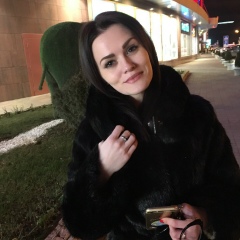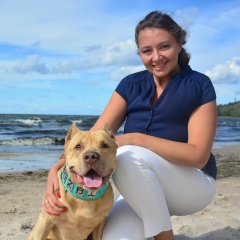Я помню. Я плачу.
Из воспоминаний моего прадеда:
«В ту ночь мы не могли заснуть – вспоминали судьбы близких. И если первая мировая война унесла из числа их брата отца и брата Беллы, то теперь потери оказались много большими. На фронте были убиты три наших совсем юных племянника. Из выступления по радио Главного хирурга вооруженных сил СССР академика Николая Николаевича Бурденко мы знали о трагической гибели нашего свояка — блестящего хирурга, кандидата медицинских наук, близкого и родного нам по духу Самуила Борисовича Гохберга: финны, захватившие советский полевой госпиталь, пытали и убили его. В блокированном Ленинграде погибли сестра матери – София и два брата отца – Михаил и Евсей. У отца было шесть братьев и две сестры. Прокормить такую ораву дед – часовщик – не мог и двое или трое из них – в том числе Евсей – выросли в еврейском сиротском доме. И по облику, и по характеру Евсюша был точной копией своей матушки Настасьи Соломоновны, имя которой первым упомянуто в моих воспоминаниях, а память нетленна в моем сердце. Человек необычайной доброты, весельчак в стиле Беренжа, он был кумиром детей и общим любимцем. На протяжении многих лет он работал уполномоченным по приемке металлолома и самоотверженным выполнением своих обязанностей заслужил доброе отношение руководителей всех обслуживаемых заводов. В блокированном Ленинграде сбор металлолома потерял свою актуальность и Евсюше выдали пропуск на выезд из города домой в Озерки, замерз где-то между Удельной и Поклонной горой. Мы очень скорбили об этой утрате.»
Из воспоминаний моего прадеда:
«В ту ночь мы не могли заснуть – вспоминали судьбы близких. И если первая мировая война унесла из числа их брата отца и брата Беллы, то теперь потери оказались много большими. На фронте были убиты три наших совсем юных племянника. Из выступления по радио Главного хирурга вооруженных сил СССР академика Николая Николаевича Бурденко мы знали о трагической гибели нашего свояка — блестящего хирурга, кандидата медицинских наук, близкого и родного нам по духу Самуила Борисовича Гохберга: финны, захватившие советский полевой госпиталь, пытали и убили его. В блокированном Ленинграде погибли сестра матери – София и два брата отца – Михаил и Евсей. У отца было шесть братьев и две сестры. Прокормить такую ораву дед – часовщик – не мог и двое или трое из них – в том числе Евсей – выросли в еврейском сиротском доме. И по облику, и по характеру Евсюша был точной копией своей матушки Настасьи Соломоновны, имя которой первым упомянуто в моих воспоминаниях, а память нетленна в моем сердце. Человек необычайной доброты, весельчак в стиле Беренжа, он был кумиром детей и общим любимцем. На протяжении многих лет он работал уполномоченным по приемке металлолома и самоотверженным выполнением своих обязанностей заслужил доброе отношение руководителей всех обслуживаемых заводов. В блокированном Ленинграде сбор металлолома потерял свою актуальность и Евсюше выдали пропуск на выезд из города домой в Озерки, замерз где-то между Удельной и Поклонной горой. Мы очень скорбили об этой утрате.»
I remember. I'm crying.
From the memoirs of my great-grandfather:
“That night we could not fall asleep - we remembered the fate of loved ones. And if the First World War took away from their brother's father and brother Bella, now the losses were much greater. At the front, three of our very young nephews were killed. From a radio speech by the Chief Surgeon of the Armed Forces of the USSR, Academician Nikolai Nikolayevich Burdenko, we knew about the tragic death of our brother-in-law, a brilliant surgeon, candidate of medical sciences, close and dear to us in spirit, Samuil Borisovich Gokhberg: the Finns who captured the Soviet field hospital tortured and killed him. In a blocked Leningrad, the mother's sister, Sofia and two father's brothers, Mikhail and Eusei, died. My father had six brothers and two sisters. Grandfather - a watchmaker - could not feed such a horde, and two or three of them - including Eusebius - grew up in a Jewish orphanage. Both in appearance and in character, Yevsyusha was an exact copy of her mother Nastasya Solomonovna, whose name was first mentioned in my memoirs, and the memory is imperishable in my heart. A man of extraordinary kindness, a fun man in the style of Berengue, he was an idol of children and a common favorite. Over the years, he worked as an authorized representative for the acceptance of scrap metal and the selfless fulfillment of his duties earned the good attitude of the managers of all the serviced plants. In the blocked Leningrad, the collection of scrap metal lost its relevance and Yevsyusha was given a pass to leave the city for home to Ozerki, frozen somewhere between Udelnaya and Poklonnaya Gora. We were very sad about this loss. ”
From the memoirs of my great-grandfather:
“That night we could not fall asleep - we remembered the fate of loved ones. And if the First World War took away from their brother's father and brother Bella, now the losses were much greater. At the front, three of our very young nephews were killed. From a radio speech by the Chief Surgeon of the Armed Forces of the USSR, Academician Nikolai Nikolayevich Burdenko, we knew about the tragic death of our brother-in-law, a brilliant surgeon, candidate of medical sciences, close and dear to us in spirit, Samuil Borisovich Gokhberg: the Finns who captured the Soviet field hospital tortured and killed him. In a blocked Leningrad, the mother's sister, Sofia and two father's brothers, Mikhail and Eusei, died. My father had six brothers and two sisters. Grandfather - a watchmaker - could not feed such a horde, and two or three of them - including Eusebius - grew up in a Jewish orphanage. Both in appearance and in character, Yevsyusha was an exact copy of her mother Nastasya Solomonovna, whose name was first mentioned in my memoirs, and the memory is imperishable in my heart. A man of extraordinary kindness, a fun man in the style of Berengue, he was an idol of children and a common favorite. Over the years, he worked as an authorized representative for the acceptance of scrap metal and the selfless fulfillment of his duties earned the good attitude of the managers of all the serviced plants. In the blocked Leningrad, the collection of scrap metal lost its relevance and Yevsyusha was given a pass to leave the city for home to Ozerki, frozen somewhere between Udelnaya and Poklonnaya Gora. We were very sad about this loss. ”
У записи 4 лайков,
0 репостов.
0 репостов.
Эту запись оставил(а) на своей стене Паша Калашников

























